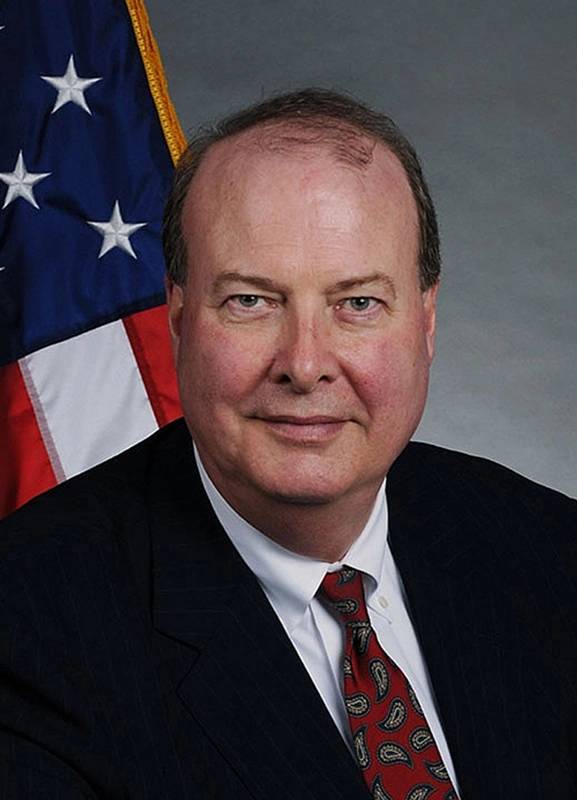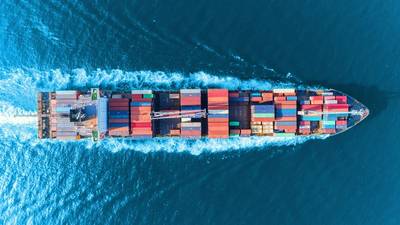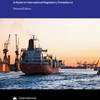FMC: Ocean Shipping Challenges Abound
Since early Spring 2020, American consumers have received a practical education in supply chain operations. One lesson is that it takes more than simply going online and clicking a “Buy Now” button for goods to show-up on our front porches. While the networks and systems that deliver commodities from around the globe might have been stretched as a result of COVID-19 related impacts, the men and women who move the freight have worked selflessly and tirelessly to meet consumer and manufacturing demand.
Early on in the response to COVID-19, I asked my fellow Commissioners and Federal Maritime Commission (FMC) staff to identify any regulatory relief our agency could grant that might make a difference to American shippers and consumers, ocean carriers, non-vessel operating common carriers, freight forwarders, and marine terminal operators. In April, the FMC voted to allow parties to file service contracts up to 30 days after they take effect. The Commission instituted this relief through December 31 as response to information developed in Fact Finding 29, which is focused on COVID-19 related impacts on the ocean supply chain.
The FMC is currently considering a proposal to make this temporary 30-day contract filing exemption a permanent part of our agency regulations. Such regulatory relief, if and when enacted, would benefit our import and export shipper community by increasing freight fluidity. It would also be another meaningful step in response to a prior World Shipping Council petition seeking regulatory relief from service contract filing requirements.
The National Industrial Transportation League, a major trade association representing American shipper interests, filed their support for the WSC petition.
Since Fact Finding 29’s launch in March, Commissioner Dye assembled Supply Chain Innovation Teams in Los Angeles/Long Beach, New York/New Jersey and New Orleans. In the earliest phase of this Fact Finding, Commissioner Dye and the industry stakeholder teams developed recommendations that would benefit the management of cargo flows through marine gateways. The focus of Fact Finding 29 has turned to exploring actions that can lay the best foundations to prepare the ocean supply chain for the regular volumes of trade that we are accustomed to seeing at our ports.
While the FMC is more commonly associated with maintaining the commercial integrity of the marketplace for containerized ocean cargo, our agency also has regulatory oversight related to passenger vessel operators regarding cases of cruise non-performance and onboard injuries or deaths. Commissioner Louis Sola was appointed to lead Fact Finding 30 to examine COVID-19 related impacts to the cruise industry.
Over the past months, Commissioner Sola has documented how COVID-19 and the cessation of passenger cruises has impacted not only cruise vessel operators, but also ocean ports and related industries that support the cruise industry. He has engaged in outreach to senior levels of other federal agencies, including the Departments of Transportation and Homeland Security, to share the Fact Finding’s assessments and interim conclusions – all focused on facilitating conversations about next steps to safely restart cruise operations, getting cruise industry people back to work, and allowing American cruise vessel patrons to again enjoy the services of the cruise vessel industry.
The FMC’s attention has not been solely focused on COVID. In addition to the two Fact Findings, we have maintained attention on ongoing ocean carrier competition monitoring and we continually work to refine our operations to meet changes in industry operations.
The FMC responded to impacts on the ocean supply chain via several initiatives. Overarching all agency missions is our commitment to the close monitoring of ocean carrier cooperation agreements filed at our agency. We monitor more than 300 ocean carrier agreements; however, we assign staff to give particular focus and scrutiny to the three global carrier alliances. These global alliance agreements receive the highest and most frequent levels of monitoring given their potential to facilitate or result in adverse market conditions. We have redoubled our efforts to be on guard for any ocean carrier behaviors that violates the Shipping Act. If prohibited anticompetitive activity is detected, our agency will not hesitate to act to restore competition and integrity in America’s ocean supply chain.
Concerning other agency operations, we are in the process of updating our enforcement priorities by identifying areas where a strategic focusing of resources will make the most difference in protecting the public and the integrity of the marketplace. FMC enforcement activities also focus on the Ocean Transportation Intermediaries (OTI) sector of the shipping industry. FMC Enforcement personnel will prioritize identification of individuals and companies who improperly hold themselves out to the public as providing ocean transportation services while not holding a required FMC license, maintaining a bond to provide shippers with financial security, and otherwise not operating in compliance with Shipping Act provisions.
We continue our efforts to bring commonality both within the FMC and with other federal enforcement agencies concerning the definition of “Co-Loading”. It is timely for the FMC to revisit the co-loading rules in light of modern commercial practices and the continuing evolution of the shipping industry, including the important effects of FMC regulatory reforms following passage of the Ocean Shipping Reform Act in 1998.
The mis-declaration of hazardous materials is an area where we work in cooperation with Customs and Border Protection and the U.S. Coast Guard. The FMC’s Shipping Act concern is the market fraud when a shipper declares to a common carrier in its shipping documents that the tendered cargo is some innocuous variety, when the cargo is properly categorized as hazardous; thereby receiving a lower freight rate. A parallel concern is the danger to ship safety and life that mis-declared hazardous cargoes represent. Parties that knowingly engage in masquerading such commodities as anything other than what they are must be held accountable. The FMC has information resources and expertise that can benefit a coordinated multiagency effort to target such bad actors. In addition to the interest expressed by partner federal agencies, I applaud those carriers and OTIs who recognize the role and responsibility they have in contributing to the maintenance of a safe and secure ocean supply chain.
 The Author: Michael A. Khouri, Chairman, Federal Maritime Commission
The Author: Michael A. Khouri, Chairman, Federal Maritime Commission














